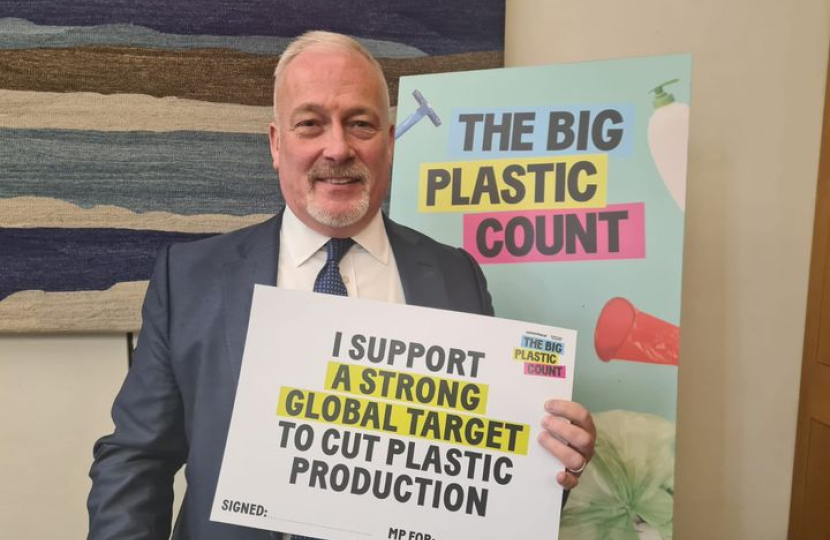
Last week, Richard joined Greenpeace in Parliament to support efforts for a global plastics target to wean us off unnecessary plastics production. The event showcased the results of The Big Plastic Count, a huge citizen science project to count the amount of plastic we use and gain new insights into the amount that's being burned, sent abroad, sent to landfill, and not recycled.
Richard Fuller MP said:
Since 2010, Conservative governments have made good progress in reducing plastics use - a record not matched by many countries around the world - and we should find ways to encourage all countries to step up to the challenge.
Significant progress has already been made to address plastic pollution, including a ban on microbeads and restricting the supply of plastic straws, plastic drink stirrers, and plastic-stemmed cotton buds. The use of single-use carrier bags in supermarkets has reduced by over 98 per cent.
Restrictions on a range of single-use plastics, including plastic plates, trays, bowls, cutlery, balloon sticks and certain types of polystyrene cups and food containers have now come into force. England uses 2.7 billion items of single-use cutlery and over 700 million single-use plates per year, but only 10 per cent are recycled. This new ban is the next step in cracking down on harmful plastic waste.
Through the Environment Act 2021, the government has set a target is to halve residual waste by 2042. This refers to waste that is sent to landfill, put through incineration, or used in energy recovery in the UK or overseas. This is an intentionally broad target, which will include the most environmentally harmful materials like plastics, rather than banning a single type of material and risk producers moving to a different, more harmful material.
The UK is a founding member of the High Ambition Coalition to End Plastic Pollution, a group of over 60 countries calling for an ambitious and effective treaty. The UK has been a vocal proponent of a strong and comprehensive agreement that covers the whole lifecycle of plastics, including restraining and reducing the production and consumption of plastic to sustainable levels, promoting a circular economy for plastic, managing plastic waste in an environmentally sound and safe manner, and preventing and reducing releases of plastics into the environment.
The United Nations Environment Assembly Resolution set an ambitious timetable for the agreement of a new international, legally binding plastics treaty by end of 2024. The government is committed to securing an agreement on the text by the end of the year and is working closely with other Parties and stakeholders to facilitate progress.

